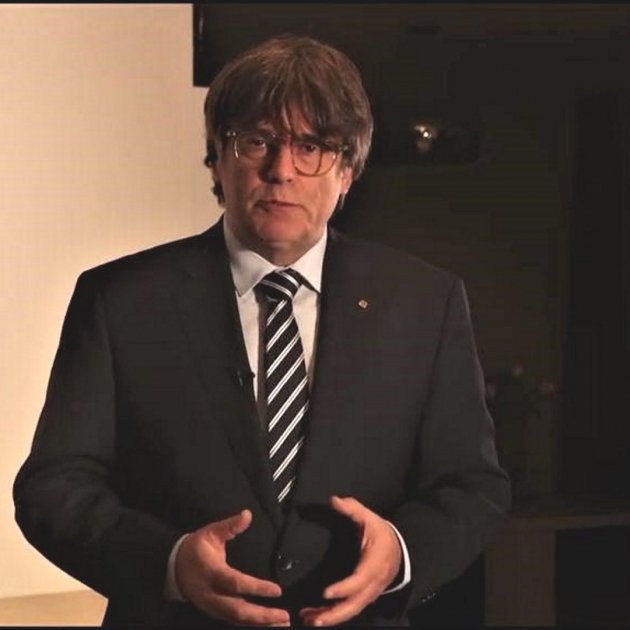The legal representatives of the Spanish government have joined the Supreme Court public prosecutors and filed an appeal against the interlocutory order of judge Pablo Llarena in which they seek to include the crimes of aggravated disorder and misuse of funds in the new prosecution of the exiled Catalan president Carles Puigdemont. Judge Llarena, quite critical of the PSOE government's law reform, stated that, with the crime of sedition repealed, he can "only" accuse the Catalan politician of misuse of funds - albeit the 'aggravated' variant of that crime, which could lead to a maximum sentence of 12 years in prison - and the more minor charge of disobedience. However, with the Spanish state solicitors' reading of the Penal Code reform, which matches that of the prosecutors, there is no reduction in penalties and president Puigdemont could have to face 17 years in prison (12 for misuse of funds and 5 years for aggravated public disorder).
In the appeal, presented this Wednesday, and to which ElNacional.cat has had access, the state solicitor in the case, Rosa María Seoane, criticises Llarena, reminding him that the job of the investigating judge is only to bring together evidence of actions that could be criminal, but that it is not his function to specify the crimes and least of all the specific variation of the crimes; rather, this is delimited by the prosecution and the prosecuting court. For this reason, she demands that, in addition to misuse of funds, he include the crime of public disorder, since in the autumn of 2017, she considers that this took place, as the 2019 judgment of the pro-independence leaders concluded, in her opinion, and that is why president Puigdemont and the former ministers in exile Toni Comín and Clara Ponsatí can be accused of these crimes. If Llarena does not rectify this, the prosecutions will present an appeal to the criminal division of the Supreme Court, of which the investigating judge himself is a member.
Limitation of charges
The Spanish government's legal representative explains that judge Llarena's decree "limits the right of the prosecution to be able to deploy its action", by preventing the application of crimes defined in the Penal Code reform, agreed and passed through the legislature by the PSOE, Podemos and ERC - thus referring to the new crime of aggravated public disorder. "The resolution not only deprives the prosecutors of being able to exercise their accusation without undue restrictions, but also prevents a pronouncement by the prosecuting court on the interpretation and application of the reform", says Seoane.
In this regard, the state solicitor reminds judge Pablo Llarena that "a trial had to be held", referring to the 2019 court process, so that "the trial court could rule on the category of crime which matches the facts, setting aside the [accusation] made in the indictment decree", referring to the fact that Llarena had indicted the nine Catalan leaders for rebellion and the Supreme Court convicted them of sedition, as argued by state solicitor Seoane herself, who "deviated from the facts described by the investigating judge".
Arrest warrants
In addition, in the event that extradition takes place, the state solicitor explains that the main effect of the principle of specificity lies in the fact that the person handed over by virtue of a European Arrest Warrant may not be prosecuted, convicted or deprived of liberty for an offence committed before they are handed over except that which motivated the warrant.
As a result of all this, she asks judge Llarena to modify the decree and include the new crime of aggravated public disorder for the three pro-independence politicians.
